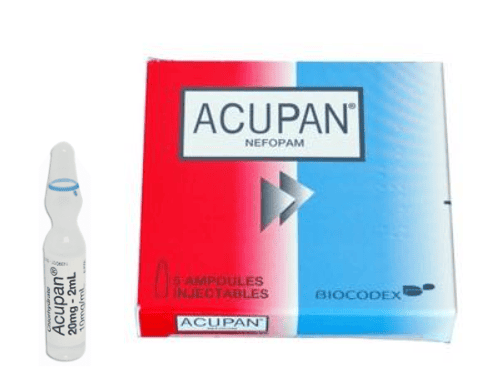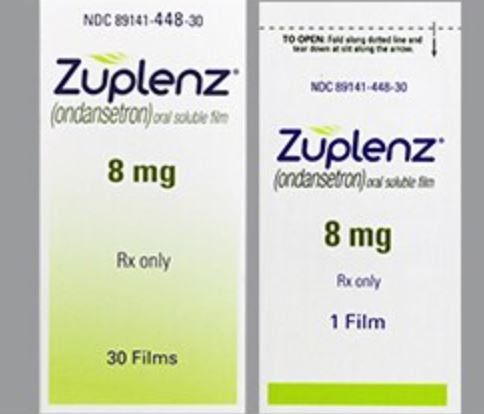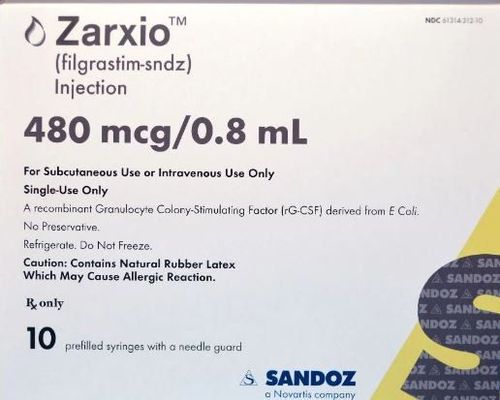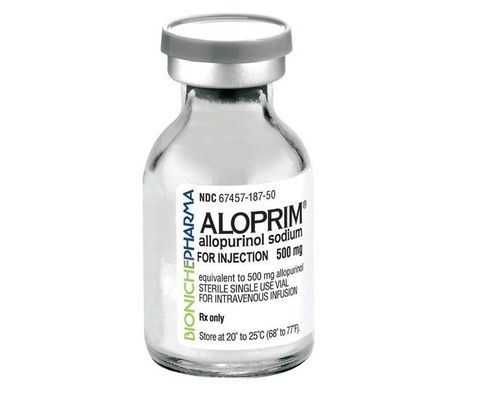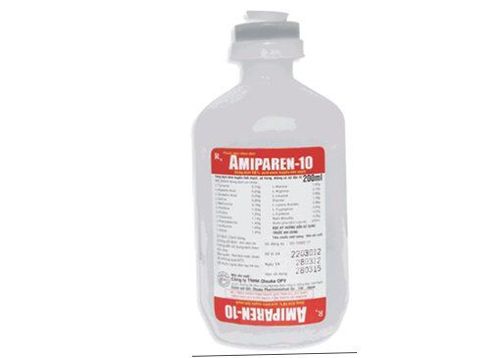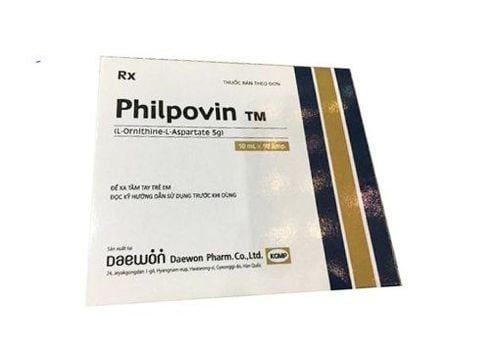This is an automatically translated article.
Ethyol works to reduce the risk of kidney problems caused by treatment with a certain anti-cancer drug. It is also used to help prevent some of the side effects caused by radiation therapy for head and neck cancer.
1. What is Ethyol?
Ethyol is the trihydrate form of amifostine, which is an organic thiophosphate cytoprotectant. Ethyol works by stopping certain substances from destroying healthy cells. The drug is prepared in the form of a solution for a solution, an infusion of 500mg/10ml.
Ethyol is a medicine used to reduce the risk of kidney problems caused by treatment with a certain anti-cancer drug. It is also used to help prevent some side effects such as dry mouth caused by radiation therapy for head and neck cancer. Besides, the drug also works to restore cells damaged by cisplatin or radiation treatment.
2. How to use ethyol
Ethyol is given by injection into a vein, usually 15 to 30 minutes before cancer treatment or as directed by your doctor. Dosage is based on the patient's medical condition, body mass, and response.
To reduce the risk of unwanted effects such as low blood pressure, the doctor may ask the patient to lie down while taking the medicine. Furthermore, if you are taking blood pressure medication, your doctor may ask you to stop taking your blood pressure medication for a few days before using ethyol. Consult your doctor before taking blood pressure medications again. Also, drink plenty of fluids during treatment with ethyol to reduce the risk of side effects or as directed by your doctor.
3. Dosage of ethyol
3.1 Adult dosing of ethyol Usual Adult Dose for NSCLC
To reduce the cumulative nephrotoxicity associated with repeated use of ethyol, take 910 mg/m2 once daily as an infusion for 15 minutes, 30 minutes before chemotherapy. Ethyol infusion should be stopped if systolic blood pressure drops sharply in the following situations:
Baseline systolic blood pressure <100 mmHg and a 20 mmHg decrease during treatment. Baseline systolic blood pressure was in the range of 100-119 mmHg and decreased by 25 mmHg during treatment. Baseline systolic blood pressure was in the range of 120-139 mmHg and decreased by 30 mmHg during treatment. Baseline systolic blood pressure was in the range of 140-179 mmHg and decreased by 40 mmHg during treatment. Baseline systolic blood pressure >=180 mmHg and decrease by 50 mmHg during treatment.
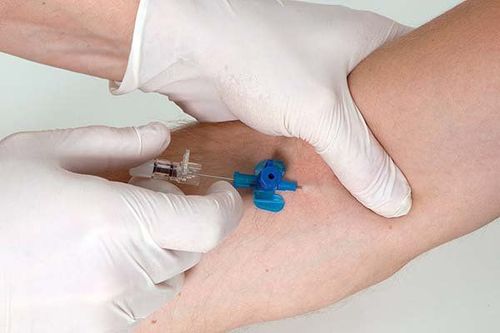
Liều dùng của thuốc ethyol được chỉ định bởi bác sĩ chuyên khoa
Usual Adult Dose for Ovarian Cancer
To reduce cumulative renal toxicity is also associated with regular use of cisplatin. Use 910 mg/m2 once daily as an infusion for 15 minutes, 30 minutes before chemotherapy. Ethyol infusion should be stopped if systolic blood pressure drops sharply in the following situations:
Baseline systolic blood pressure <100 mmHg and a 20 mmHg decrease during treatment. Baseline systolic blood pressure was in the range of 100-119 mmHg and decreased by 25 mmHg during treatment. Baseline systolic blood pressure was in the range of 120-139 mmHg and decreased by 30 mmHg during treatment. Baseline systolic blood pressure was in the range of 140-179 mmHg and decreased by 40 mmHg during treatment. Baseline systolic blood pressure >=180 mmHg and decrease by 50 mmHg during treatment. Usual Adult Dose for Malignant Disease
For the relief of moderate or severe dry mouth symptoms in patients undergoing postoperative radiation therapy for head, neck, and parotid gland cancers. The recommended dose of ethyol is 200 mg/m2 of skin per day as a 3-minute infusion, beginning 15 to 30 minutes before standard fractionated radiation therapy.
3.2 Ethyol Dosage for Children The dosage of ethyol for children has not been studied and decided yet. Consult your doctor if you are giving this medicine to a child.
4. Side effects when taking ethyol
If the patient has any signs of an allergic reaction such as rash, itching, tightness in the chest, difficulty breathing, swelling of the face, lips, tongue or throat, fever or cold, seek medical attention immediately. for timely intervention. Some side effects of ethyol can last up to several weeks after a person has used the drug. Tell the doctor immediately if the patient has serious side effects such as:
Feeling like passing out. Chest pain, slow or fast heart rate. Weak or shallow breathing. Convulsions. Urinary retention or little urination. Severe rash on abdomen, back and body. Redness, rash, or blisters on the palms or soles of the feet. Skin irritation, fever, sore throat, swelling in the face or tongue, burning eyes, skin pain, followed by a red or purple skin rash (especially the face and upper body) can spread, causing blisters and bursts. Less serious side effects are:
Nausea, vomiting. Dizziness, drowsiness. Redness (warmth, redness and itching sensation). Cold . Hiccup . Sneezing Mild fever, feeling weak all over.
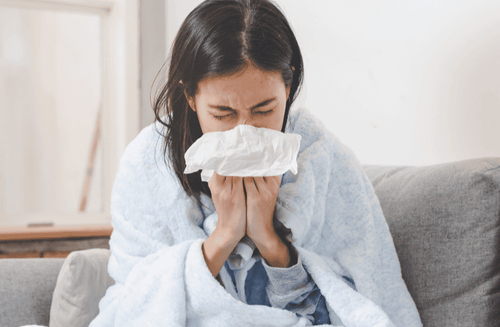
Cảm lạnh là một trong các tác dụng phụ ít nghiêm trọng do thuốc ethyol gây ra
5. Some notes when using ethyol
Patients should tell their doctor or pharmacist if they are allergic to ethyol and any of its ingredients, or to any other medications. In addition, you should also tell your doctor or pharmacist if you are taking or plan to take any prescription or nonprescription medicines, vitamins, other dietary supplements and herbs, especially hypertension treatment. Your doctor will ask you to stop taking your blood pressure medication 24 hours before injecting ethyol. Many other drugs also interact with ethyol, so be sure to tell your doctor about all medications you are taking.
Patients with a history of heart disease, irregular heartbeat, heart failure or stroke or mild stroke also need to be careful when taking ethyol.
For women who are pregnant and breastfeeding, or planning to become pregnant, consider using ethyol. Pregnant women should not breast-feed during treatment with ethyol. In addition, the patient must not arbitrarily use the drug, stop the drug or change the dose of the drug without the permission of the doctor.
Currently there are not enough studies to determine the risks of taking ethyol during pregnancy or breast-feeding. Before taking medication, always consult with your doctor to weigh the benefits and risks of the drug. Ethyol is a class C drug for pregnancy. It is not known whether ethyol passes into breast milk or harms the baby, however breast-feeding while taking ethyol is not known. If you forget to take a dose of medicine, notify your doctor immediately so that you can supplement or have an appropriate treatment regimen.
6. Ethyol drug interactions
Drug interactions can change how ethyol works or increase the effects of unwanted effects. Tell your doctor about all other medications you are taking, especially those for high blood pressure.
Certain medications including ethyol should not be taken with meals or with certain foods because of possible interactions. Besides, alcohol and tobacco can also interact with ethyol. Consult your healthcare provider about taking your medicine with food, alcohol and tobacco.
Health conditions that may affect the use of this medicine. Tell your doctor if you have any health problems such as:
Congestive heart failure . Heart attack . Heart disease. Heart rhythm problems. Kidney disease. Have a history of stroke. History of mild stroke or transient ischemic attack. Because ethyl medicine can make unwanted effects more serious. Loss of water. Hypotension: The drug should not be used in patients with hypotension.
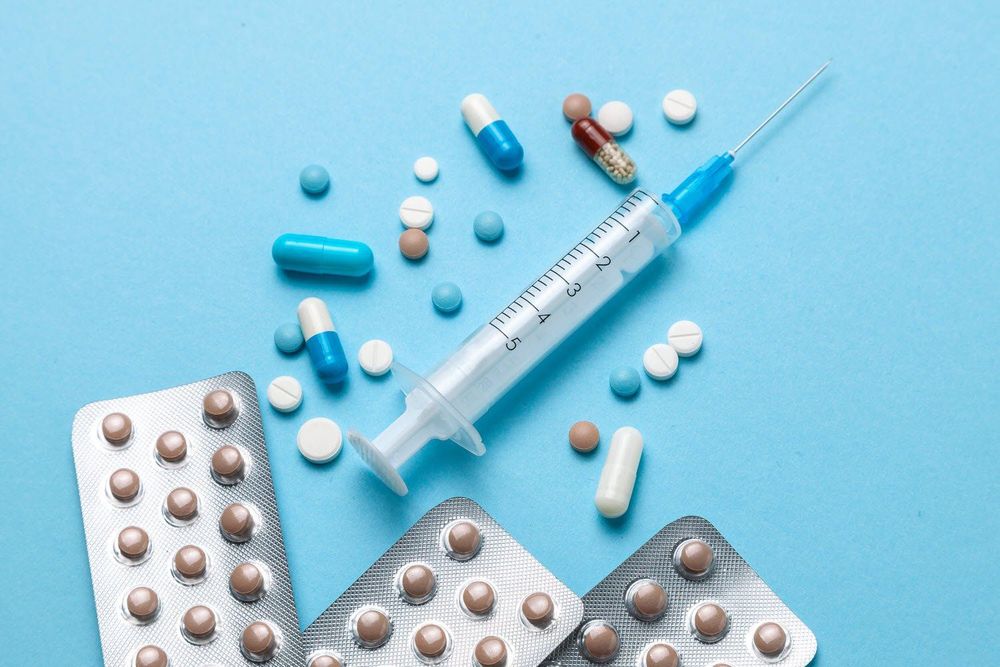
Thuốc ethyol có thể gây tương tác khi kết hợp với một số thuốc khác
7. How to store ethyol?
Store ethyol at room temperature, away from moisture and light. Do not store in a humid place or in the freezer. Each medicine will have different storage methods, so read the ethyol storage instructions carefully on the packaging, or ask your pharmacist. Keep ethyol out of reach of children and pets. Dispose of medicine properly when it is past its expiration date or cannot be used. Do not throw ethyol down the toilet or plumbing unless told to do so. Consult your local waste disposal company or pharmacist on how to safely dispose of ethyol.
In a nutshell, the drug ethyol is the trihydrate form of amifostine, which is an organic thiophosphate cell protectant that has been shown to reduce the risk of kidney problems caused by treatment with a certain anticancer drug. It is also used to help prevent some of the side effects caused by radiation therapy for head and neck cancer. However, before using the drug, consult your doctor and follow the doctor's treatment method.
Please dial HOTLINE for more information or register for an appointment HERE. Download MyVinmec app to make appointments faster and to manage your bookings easily.
Reference source: webmd.com



